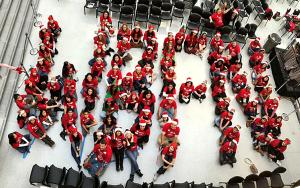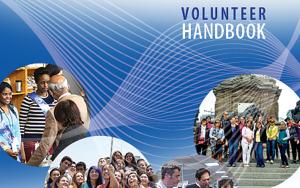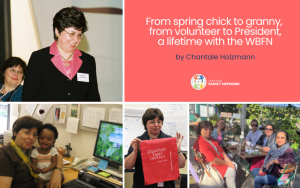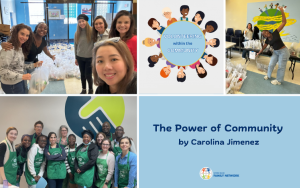
August 2020
Compiled by Beverly Brar, WBFN EC Worldwide Focal Point and Champion for Nigeria, currently in Delhi
Each Thursday over the last few months WBFN members have broken out of lockdown and travelled virtually to different country office posts around the globe. While physically constrained, our imaginations were liberated as we heard about the lives of our WBFN members in Pakistan, Malaysia, Thailand, South Africa, India and Uganda. The inside information they shared is invaluable to any WBG family planning to move to one of these posts, or just wondering what a country office posting might be like. The sessions have been recorded and will be available on the WBFN website. This article gives just a glimpse into what we have learned on these trips, including sound advice from a member in Malaysia: “Decide before you move that you will like it, and then when you get there find what’s good about it.”
Islamabad, the capital of Pakistan, is a modern, green city with gracious houses and beautiful gardens, as seen in the video of members’ homes. Members talked about weekend trips to the nearby mountains and lakes as well as the plentiful parks and playgrounds, and described the city as safe and peaceful. Replying to a question on teenagers, members suggested that girls should avoid short skirts and tank tops and while boys can travel around freely by uber or taxi it’s not done so much by girls. The WBFN chapter is dynamic, with strong participation from local spouses and family activities such as lunches and cricket matches, as well as charity projects. Entertainment includes cultural festivals, art and theatre, and private gatherings rather than bars and nightclubs. International staff are eligible to shop at the UN store which stocks alcoholic beverages. Members enjoy handicraft markets and clothes hand made by local tailors.
Bangkok, the capital of Thailand, has a population of 9.5 million, out of the Thai population of 69 million. The WBFN Regional Champion (RC) spoke of life in Bangkok as being comfortable and safe, with a wide choice of housing, several international schools, and a well-respected public health system that has been controlling Covid without lockdown. There are many activities for families and teenagers such as bowling alleys, cinemas, malls, game parlours, and green spaces for cycling and outdoor activities, as well as local markets and temples to explore. Youngsters can move around independently with a good public transport system. Laws on drug abuse are very strict, with sentences of 15 years for marijuana. The WB country office is very supportive of WBFN, and shares security information with the group. Most spouses who work are doing consultancies with organisations based outside Thailand. In order to make the most of the support given to re-locating families the RC said it’s a good idea to do some homework first so you have some ideas about the type of neighbourhood/housing you want and the questions you have, and said he was glad they had taken their teenage children on the re-location visit, at their own expense, as it made settling in easier. He also gave some tips on re-locating with pets!
Kuala Lumpur, the capital of Malaysia, is a hub for Asian travel and members spoke enthusiastically of weekend trips by plane and road across the region. Members described the city as quiet, clean and developed with good shopping and cultural facilities such as a symphony hall. The population and culture are very mixed, with, for example, Chinese temples and Indian food. It is easy to get by with English, though local people appreciate it if you can speak a little Bahasa Malay. The cost of living is cheap, with beautiful housing in neighbourhoods where you can walk to shops and restaurants. One tip on housing was that rents are negotiable. Health facilities are good, and Covid is being tackled with tracing, lockdown and good cooperation from the people. Academic standards are high, with several international schools, including 3 British and 2 American schools, with many activities. One parent commented that it can be harder for teens to go back to US schools than to be in international schools. Though WBG spouses generally do not get a permit to work they can be very active in voluntary work with NGOs, and WBFN has supported an NGO called MYReaders. The WBFN group is open to single staff as well as families.
Pretoria/Johannesburg, Most WBG families live in Pretoria, nearer to the office, though some prefer to live in the bigger city of Johannesburg and commute. One reason is that the culture in Pretoria is Afrikaans, while in Johannesburg it is English. Also, though there is American elementary and middle schooling in Pretoria, the high school is in Johannesburg. Many WB families choose to send their children to independent South African schools, but the school year is different from American/British schools. There are also British and French options. Spouses who want to work are advised to secure a job in advance and come in on their own visa, as it is a long and complicated process to get the critical skills visa which is required to work, and it is not possible to change visa status without leaving S. Africa. One tip was to sign up to do further education at the same time. Housing tips included looking online in advance, and being sure that the there is a back-up system to cover power-cuts, as well as good security. Spouses receive security and medical briefings on arrival and medical care is good quality and widely available. A car is needed to get around. Members were enthusiastic about the travel experiences available, which include wildlife, vineyards, shark diving and skiing, and described the diversity of S. Africa as “the world in a country” and the atmosphere as lively and vibrant, with a lot of adaptability and humour.
Delhi, the capital of India, is a huge city with a population of nearly 30 million. Most WBG families live in South Delhi, in well-established green neighbourhoods near the office and international schools, where large independent houses and apartments are found. Though big apartment complexes with facilities are available in the satellite town of Gurugram, these are not recommended as the commute is long and traffic is intense. Air pollution can be very bad, especially late in the year, so it is important to have air purifiers in the home. Delhi can be overpowering to begin with but becomes absorbing, with rich history and culture to explore, including Old Delhi, monuments and cultural centres, handicraft markets and art galleries, and many expat and Indian groups for social events, learning about India and supporting charities. There are excellent restaurants of all kinds, as well as a vibrant nightlife and live music scene. Most spouses who work do consultancies for employers outside India, but there are many volunteer opportunities. Most WBG families send their children to the excellent American Embassy School, which is also a centre of activities for all the family, and there are also British and French schools. Medical facilities are good and Delhi is even a centre for “medical tourism”.
Uganda, One of the countries our worldwide hangout paid a visit to in July was Uganda. Our members based in Kampala shared insights and information that only a local would be privy to. From in depth information on the school, security and health systems to the gorgeous year-round tropical weather, we learnt a great deal about life in this East African jewel located on the equator. In fact, one can visit the Uganda equator, a famous tourist attraction which is only a few hours away, by car. The city is mainly spread over seven hills, and housing is chosen on one of these, depending on the proximity to the school or the office. Laughter, happiness and joy is the common thread among Ugandans, irrespective of their social status or income. Traffic can be heavy but witnessing locals dancing in the streets, while stuck in a jam, is a common sight. Long weekends call for safaris to the National parks, camping, hiking or fishing trips, all within driving distance. Our Ugandan members who connected from other parts of the world mentioned how they missed the local food, the famous ‘Matoke’ and the beautiful weather.






